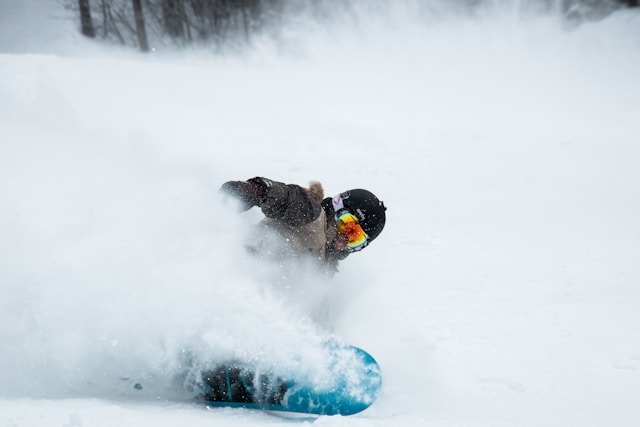A Special Event for Veterans in the Snow
In Colorado this week, over 400 veterans are gathering for something more than just skiing or snowmobiling. The Disabled Veteran’s Winter Sports Clinic is a 5-day event designed to bring people together. Veterans from around the country join in to take part in mountain activities. But the main goal is not competition. It’s about building bonds, staying active, and reconnecting with what feels good.
One of those attending is Charles Hensel, a Marine Corps veteran. For him, this is not about being the best or showing off. He says the clinic helps him remember the person he was before, while also showing that disability does not stop you from enjoying life. The cold weather, the snow, the teamwork—it all adds up to something meaningful. The event is co-sponsored by the Department of Veterans Affairs and the DAV.
More Than Just Sports—A Way to Feel Capable Again
Charles Hensel is clear about what this clinic means to him. He’s not trying to prove anything anymore. He’s focused on feeling present and doing things he thought he had lost forever. He explained how he used to push himself hard to be number one. But now, what matters is being able to ski again, feel the cold air, and laugh with others on the mountain.
Many veterans at the clinic share that same mindset. Some are recovering from injuries, while others are living with long-term disabilities. These sports give them a chance to move freely again. Activities like snowmobiling or adaptive skiing open a door that some thought was closed. It’s a reminder that movement, even on snowy hills, can still be part of your daily life.
A Clinic That Runs Beyond the Mountains
While this event is based in Colorado, its purpose reaches much further. The winter sports clinic is just one part of a broader program. Charles has also been to a summer clinic in California. These events are meant to support veterans throughout the year—not just for a week at a time.
The idea is simple. Use outdoor activity as a way to stay connected, stay active, and build confidence. Whether it’s hiking in summer or skiing in winter, these programs offer structure, friendship, and a goal. For some, it’s the only time of year they get to travel or see other veterans in person. These moments help fight isolation and support mental health in real ways.
Team Spirit Replaces Competition
One of the most powerful parts of the clinic is how it brings people together. Veterans like Charles often say it feels like being back with your unit again. You’re surrounded by people who understand you. You can relax and just be yourself without having to explain anything.
While some events involve training or coaching, there’s no pressure to win anything. You can move at your own pace. And that’s often the thing that makes the biggest difference. No one is pushed to prove anything. Everyone is encouraged to enjoy what they can and try what feels right. That sense of teamwork is something many miss after military service, and this clinic brings it back in a simple, practical way.
The Role of Support from the VA and Partners
It takes planning and help to make an event like this happen. The Department of Veterans Affairs works with the DAV to make sure that transportation, equipment, and staff are available. Adaptive gear like special skis or snowboards is made ready for different needs. Medical support is also nearby, so every veteran can participate safely.
This kind of support matters, especially when someone is trying something new for the first time since an injury. Being able to trust the process and the people around you is key. Many who attend the winter sports clinic say they couldn’t do it alone. It’s a team effort all the way through.
Building Confidence Through Action
For Charles, getting back on skis wasn’t just about sports. It was about proving to himself that he can still do things. After an injury, many veterans struggle with confidence. This event helps rebuild that step by step. From putting on the gear to standing at the top of the slope, each small action adds to a sense of strength.
It’s not about going fast or reaching the bottom first. It’s about standing on your own, using your body, and knowing you’re still capable. That’s why these events feel so important to the people involved. They’re not just physical—they’re emotional, too.
Bringing the Community Together
This event is also a reminder that community can come in many forms. You might be far from your hometown, but when you’re surrounded by people who’ve gone through similar things, it feels like home. Veterans at the winter sports clinic form bonds that often last beyond the event itself.
They share meals, stories, and moments on the snow. Some reunite every year. Others are attending for the first time and find support in people who’ve already been through the same process. That feeling of belonging is something many have been missing, and it’s one of the biggest strengths of the clinic.
What This Means Going Forward
Events like this don’t fix everything, but they do make a real difference. For Charles and others, it’s a way to look forward again. It’s a chance to take part in life instead of watching it go by. The winter sports clinic is one small part of what the VA and veteran support groups offer, but it stands out because of its impact.
It shows that physical activity, fresh air, and connection still matter. Even if the road has been long, it’s still possible to enjoy simple things—like a ride through the snow or a peaceful moment at the top of a mountain.
And in a world that’s often busy and disconnected, that message is something we can all learn from—even if you’re more used to non GamStop casinos than ski boots.
